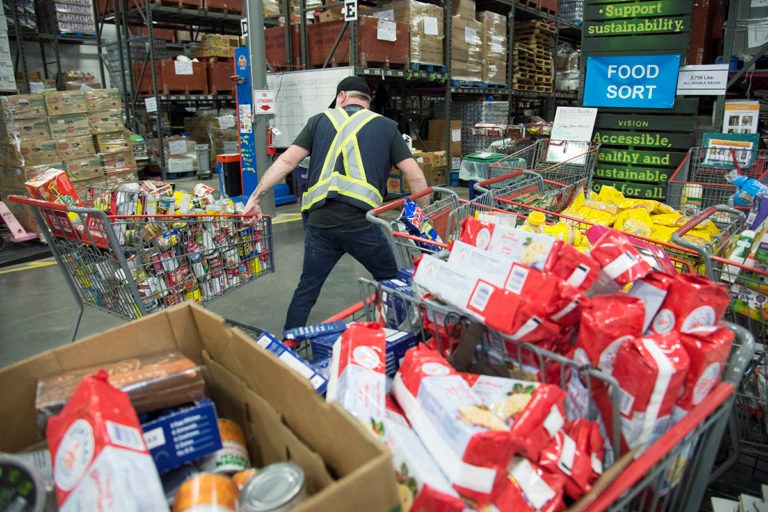Canada food banks struggle as inflation takes over dollar value: CBC
Canadian food banks struggle as demand increases and donations increase amid rising inflation rates across the country.
-

Canadian food banks struggle as inflation rises. Source: The Canadian Press.
Food banks dealt with an increase in demand caused by rising food costs, paralleled with a decrease in donations, also due to inflation, with no promise of relief in sight.
For example, Manitoba's largest food bank reports a 40% increase in clients over the previous year. Around 45,000 people in the province rely on food banks for their next meal, according to CBC.
According to CBC, information has been relayed, noting that "Canada's food price report predicts cost will rise from 5 to 7 % in 2023."
Food banks are witnessing more and more people come in for their next food plans, such as seniors on fixed incomes, pensioners, and low-wage workers.
Alberta passes Bill 1 as fears of secession loom in Ottawa
In Western Canada's prairie province of Alberta, Bill 1, Alberta Sovereignty Within a United Canada Act, received Royal Assent and came into force on December 15, 2022. According to the province, the Act "defends Alberta’s interests" and gives the province "a legal framework to push back on federal laws or policies that negatively impact" it.
Additionally, "the act will be used to address federal legislation and policies that are unconstitutional, violate Albertans’ charter rights, or that affect or interfere with our provincial constitutional rights."
However, the province clarifies that the act offers Alberta "a democratic legislative framework for defending the federal-provincial division of powers while respecting Canada's Constitution and the courts."
On its official website, the conservative-led province states that the Act will not allow the province to "defy Canada's Constitution" or "separate from Canada."
Additionally, it will not allow the cabinet to "issue unconstitutional orders-in-council" or "give instructions to private individuals or corporations that aren’t provincial entities, to violate federal law."
The leader of Alberta’s provincial government, Danielle Smith, according to The New York Times, has justified her support for the bill by saying, “It’s not like Ottawa is a national government.” This conclusion, Smith argued, is largely disputed by constitutional experts across the country. Smith added that "the way our country works is that we are a federation of sovereign, independent jurisdictions.”
The recent passage of the new law highlighted how challenging it is for Ottawa to govern a nation that is divided along regional lines.

 3 Min Read
3 Min Read








